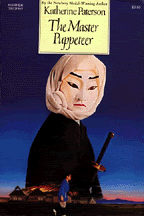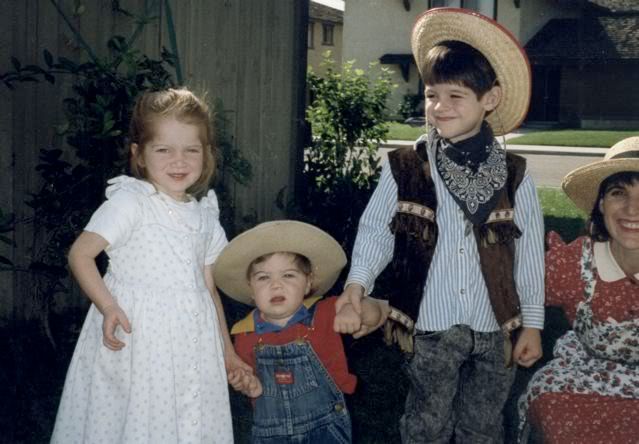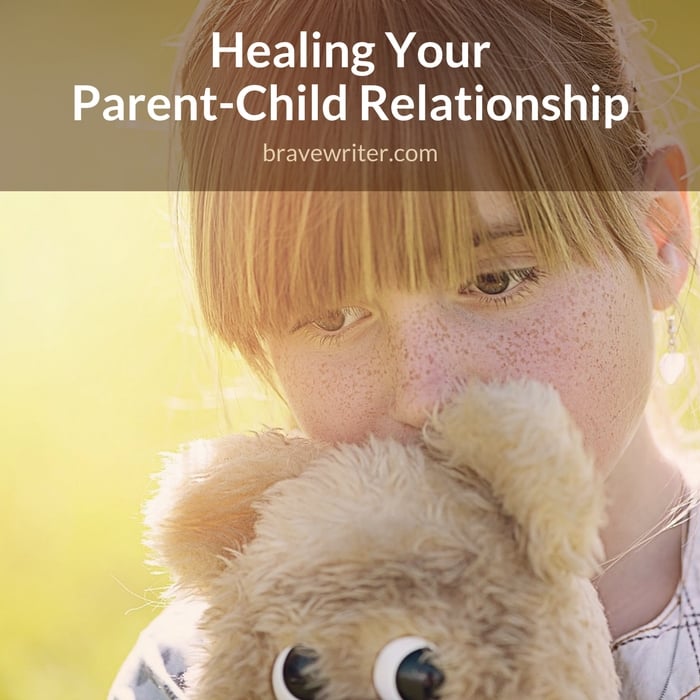
So the four of us are sitting around the table with matching mugs of tea, scattered plates with crumbs and several notebooks stacked haphazardly. I’m reading about Saburo, the Japanese do-gooder who steals from the rich to give to the poor, and my 12 year old “gets it” right away: “Hey, he’s just like Robin Hood.”
I stop the eruption of guesses as the three of them attempt to solve the mystery: which character is the notorious outlaw? I want them to enjoy the suspense, which should grow like yeast in sourdough over the next few weeks as we read together.
At that moment, the thunderous thuds of size 10 male feet pound down the stairs. Into the kitchen they hurl my son’s body, his quick hands swiping the crusts of already-eaten toast which he thrusts into his open mouth all in one move. The lip-ringed, ponytailed, 19 year old man-boy pauses in his Trader Joe’s work shirt to say breathlessly, “Are you reading The Master Puppeteer?”
“Yep,” I reply.
“Awww.” He clasps his hands in front of his heart. “I love that story! I remember when you read it to us before.” He makes a sad face tinged by a smile. “Well, gotta go to work! Love you guys.”
“Love you too!” I call after those too quick feet which are already out the front door on his way to his future…
…and then think to myself:
I love homeschool,
and I love The Master Puppeteer, too.





















